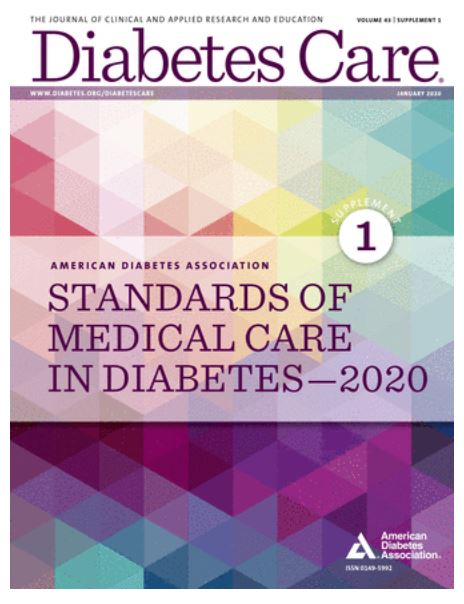Standards of Care 2020 Update
This time of year is always exciting as the new ADA Standards of Care are released.
The 2020 version incorporates these 2019 Living Standard Updates, along with a lot of additional information that impacts our practice.

Here are some highlights that particularly caught my attention:
- The Intensifying Injectables Algorithm for Type 2 was simplified and now includes instruction on using NPH in clinical practice.
- There is continued enhancement of the Cardiovascular Standard which provides intensive guidelines to improve care and reduce mortality from heart disease.
- The Microvascular Complication section was updated and new charts were added to clarify screening and diagnostic guidelines.
- In the children and adolescent section, detailed and updated information on cardiovascular risk management, screening and pharmacologic approaches were added.
- The Diabetes Technology section was re-organized and updated in an effort to keep up with the rapid pace of new tech tools that individuals are using to improve diabetes care.
Want more details on the 2020 Standards?
Those are just some of the highlights,but there is so much more to discover. Please join Coach Beverly on January 21st at 11:30 for her annual State of the Standards Live Webinar.
Save money buy purchasing the full Level 1 Bundle and join us for all of Level 1 as we update this month: see full schedule here.
For more information read our January News Updates – Now Available!
Sign up for Diabetes Blog Bytes – we post one daily Blog Byte from Monday to Friday. And of course, Tuesday is our Question of the Week. It’s Informative and FREE! Sign up below!
[yikes-mailchimp form=”1″]







